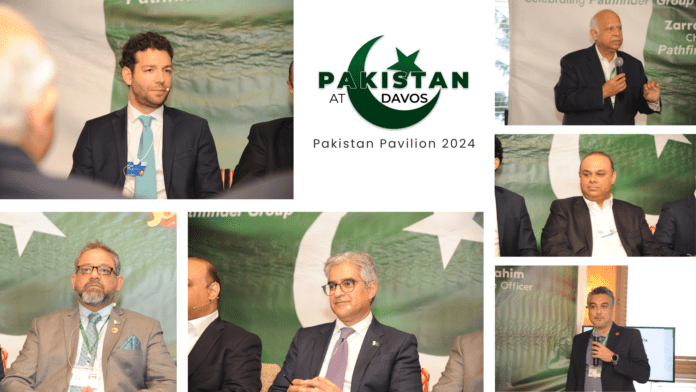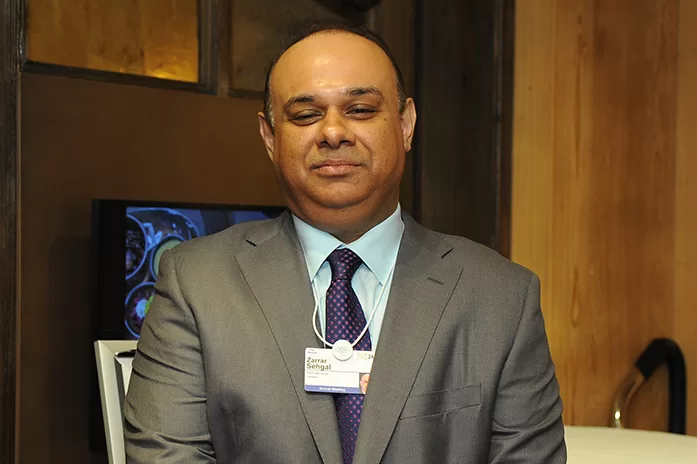
Zarrar Sehgal, Chairman Pathfinder Group
Here at the World Economic Forum, it’s wonderful to see so many familiar faces and new faces. On behalf of myself and Ikram Sehgal, I welcome you. Before introducing our esteemed guests, I just wanted to say a little bit about VRG and Digital Financial Inclusion. Pakistan has a National Strategy for Financial Inclusion designed to bring the unbanked into the system. As part of that program, Pathfinder Group has developed a switch or a program called Asaan Mobile Account (AMA), which was designed not just to further the strategy but to augment it. I’m very proud to say that it was designed and is now being implemented as a homegrown domestic Pakistani product. I think one should be very proud as a Pakistani that this was created in Pakistan by iPath, VRG.
All of those people are here today, and it’s with great pride that I welcome them to this forum as a part of bringing VRG and the Asaan Mobile Account to other countries around the world. We have now partnered up with our great friends at the World Economic Forum, particularly the Edison Alliance, and I welcome Claude Dyer, who is the Acting Head of the Edison Alliance. If you don’t know, Claude is a friend of both VRG and Pathfinder. He was the first one to bring Quantum Computing to the World Economic Forum, and I was part of that program. Now, he is leading the effort to include the underserved or the underprivileged in the financial network. Claude, I turn to you first to share a few words.
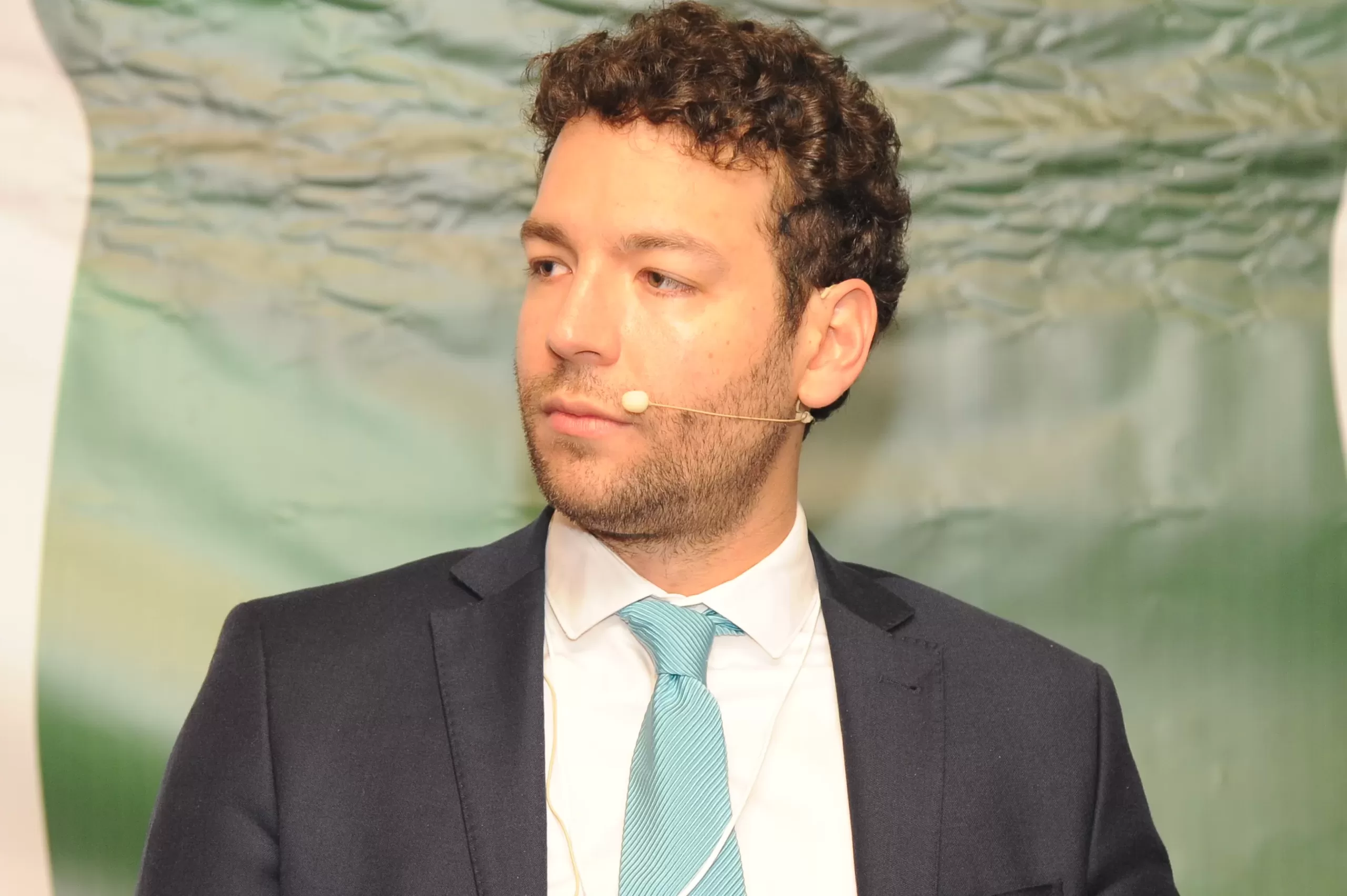
Claude Dyer, Acting Head Edison Alliance
Thank you, Zarrar, Salman Ali, and Pathfinder Group, for having me. As you were saying, I work with the World Economic Forum, and I lead the Edison Alliance, which is the Forum’s flagship initiative on digital inclusion. We launched it three years ago. You might be aware that one-third of the world’s population does not have access to the Internet today. So, we’ve gathered a pretty large community of 160 to 180 partners around a common goal to see how we could collectively bridge the digital divide. I see Mats from GSMA who is one of our Champions, a group of very senior leaders, CEOs, ministers, and heads of organizations that provide guidance and leadership. We are addressing the main barriers to universal digital inclusion, which are, of course, access to connectivity, the lack of necessary digital infrastructure, affordability of devices, affordability of data plans, and what we call usability, the lack of necessary digital skills.
The vision behind the Edison Alliance launched in 2021 at the height of the COVID-19 pandemic, is that we realized that basic life services that all of us here take for granted – banking, health, education – were moving online at a very rapid pace, exacerbating existing inequalities. Think of a teenager living in a remote area, maybe with broadband access, that teenager is still able to go to school physically. Now, with closures, it’s a double exclusion, and that person’s future is jeopardized because all of a sudden they don’t have access to basic education. So, that was our idea to kind of expand our definition of digital inclusion, to see how we could provide affordable and accessible digital solutions to underserved populations around the world.
So, there are three things that we’re rapidly doing. The first is we tried to gather this community around a common goal, the one billion life challenge. The idea was to set a very ambitious but simple challenge to see how we could provide these services to one billion people around the world by 2025. We announced two days ago in a press release, in several press conferences, in events, that our partners have reached 784 million lives so far across 320 initiatives in 127 countries.
So, that’s great progress that we’re very excited about. But what’s even more interesting is, thanks to this kind of reporting, we’ve mapped out 300 initiatives and now we’re making connections between partners to scale them and have more of an ecosystem play. Because there’s no lack of effort, we’re seeing that many initiatives are tackling these different issues, but there’s a lack of collaboration. So, we’re trying to be a catalyst and provide a platform for partners to come together, and we’re seeing several partnerships emerge from the Edison Alliance.
Lastly, I would say, facilitating best practice sharing and peer learning we have a platform for that we call the ‘Lighthouse Countries Network.’ We have 11 countries that have joined us; five have joined us two days ago. The idea is for ministers of ICT to exchange digital inclusion solutions that they’re testing that might be replicable across geographies. The second is really to help them also crowd in private sector resources to advance their digital inclusion agendas. So, that’s kind of our mission.
We’re very proud to have VRG and the Pathfinder Group as part of this great coalition, and I would like to commend you on reaching 10 million bank accounts through the Asaan Mobile Scheme. We’ve participated and collaborated quite a bit. We ran a spotlight day, inviting the entire Edison Community to learn more. We want to amplify great solutions that are being deployed and that are successful.
So, hopefully, other partners can replicate them across geographies. We’ve produced several social media videos. I think you’re showcasing the Asaan Mobile scheme on our initiative Marketplace and our Navigator, which has a thousand pieces of content today. So, we’re looking forward to continuing this great collaboration.
What’s interesting to me is that the talk of the town this year is AI and how new technologies are already transforming our lives. I worked on Quantum, and Quantum will be the next step eventually, we don’t know when. But what you’re doing is you’re using the technology that exists today in a very innovative way to provide solutions to people who don’t have access to basic needs like banking.
I think that’s very commendable and a great way to show that actually with existing technology, there’s so much that can be done.
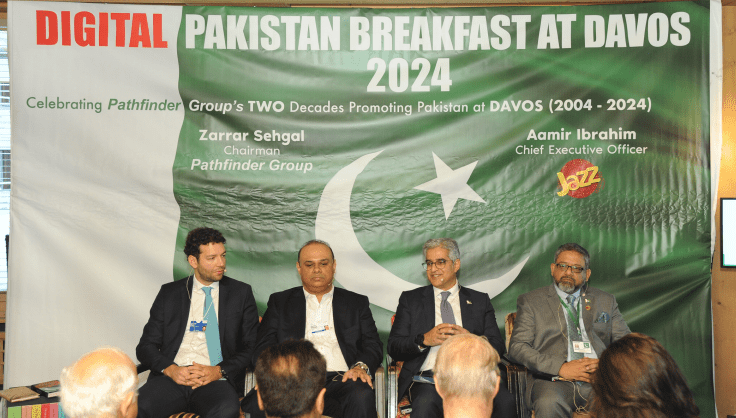
Zarrar Sehgal, Moderator
Thank you, Claude, and of course, thank you for the support of the Edison Alliance. Your work, not only with us but also globally, is vital. The initiative to bring the unbanked into the network and empower women, as well as integrating those outside the banking system, remains a critical objective. Your background in Quantum Computing will undoubtedly be beneficial for the future, given the advancements in the field. I believe professionals like myself, lawyers, may soon become obsolete as AI and Quantum Computing continue to evolve.
Now, I’d like to introduce our friends at Jazz. Our collaboration has been incredibly fruitful over the years, and I would even go as far as to say more than fruitful. Jazz was one of the first companies to support us at VRG and our Asaan Mobile Account initiative. While some within their institution may have viewed us as competitors, especially within the Telecom Community, Jazz has surpassed expectations. With over 70 million subscribers, Jazz remains the largest Telecom provider in Pakistan. Jazz Cash, their digital wallet scheme, is widely recognized as the most popular method for digital money transfers in the country. I now invite Aamir Ibrahim to share a few words.
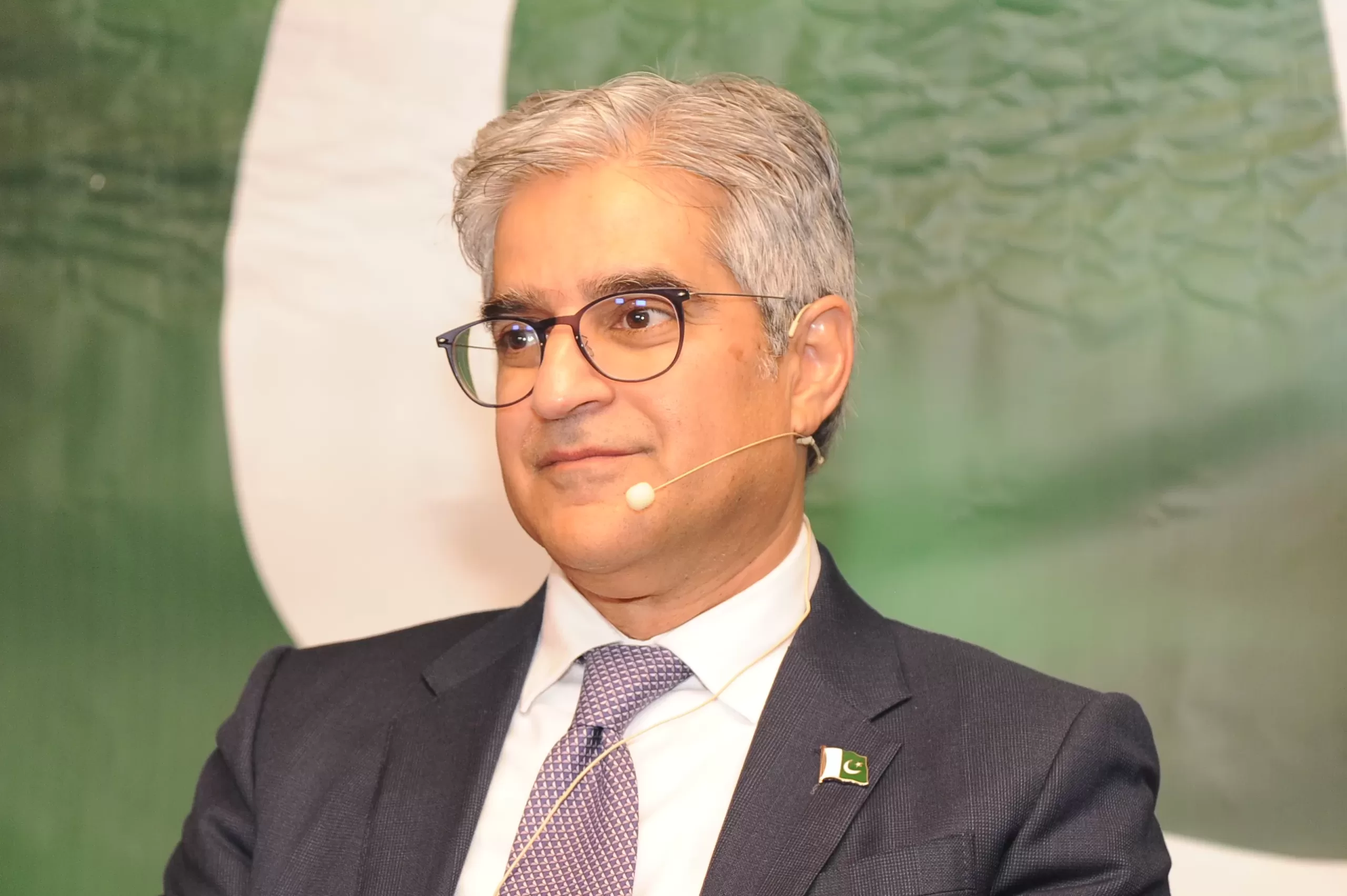
Aamir Ibrahim, CEO JAZZ
Thank you, Zarrar. Let me extend the customary but very heartfelt words of appreciation to you, Ikram Sehgal. I’d also like to thank all the guests who are joining us, including Mats, Dr. Sahab, and Jahanzaib Sahab – familiar faces. I think I’ll be preaching to the converted, but I believe it’s an important story that must be told.
Last year, the term “polycrisis” was coined over here, from COVID to conflict to climate. Given the events of the last two days, especially for Pakistan with the cross-border incursions, I think we’re in a state of what you might call ‘Perma-crisis’. We just have to recognize these kinds of crises as the new normal. Just as the term ‘New Normal’ was coined at the time of COVID-19, I believe the world is now going through a new normal where conflict and Black Swan events will always be present. So, we have to somehow factor those in. Unfortunately, Pakistan was negatively affected by the ‘polycrisis’ a year ago. We lost 30,000 precious lives. Although we did remarkably well in managing COVID-19, the conflict resulted in a 30% inflation and a 30% devaluation of the currency. Then we had the biblical floods of 2022; we can’t forget that one-third of the population was affected, with 15 million people displaced, resulting in about $30 billion in damages, a huge blow to the Pakistani economy. When faced with such challenges, it’s difficult to feel optimistic about the future. But as leaders, we are dealers in hope, and we have to promise the world and our next generations a better future.
The question arises: Can digital technology make a difference for us? Of course, it can, it has, and it will continue to do so. The inspirational stories that we’ve just heard are a testament to what technology can do to uplift people and bring communities together. So, we want to move away from the three C’s of last year to the three T’s, I would say the theme of this year is rebuilding trust and Technology could be a great facilitator in building that trust. The last component of that is going to be transparency. So, Technology, Trust, and Transparency should be the new mantra.
How does Jazz fit into this picture? I want to spend a little more time on that. You can’t build trust if your population is not included. So, the whole concept of AMA, JazzCash, and digital financial inclusion is really to bring the populace to the discussion table. What we have in our hands today is the remote control of our lives, one of the best equalizers that the world has ever seen. It reduces the gap between the poor and the rich, between urban and rural, between one economy in the Western Hemisphere and another one which is lesser developed in the Southern Hemisphere. But it has to be intentional; it won’t happen automatically.
We at Jazz have been at the forefront of ensuring that we bridge these gaps. Thirty years ago, when we started our company – a lot of you probably know us as Mobilink – we were a company that used to build towers and sell SIM cards, and we will continue to do that. But our license does not define our identity. The evolving customer needs are where we need to go; the market opportunities will gravitate us towards those opportunities. So, we consider ourselves a consumer company with a telecom license or a banking license. But let’s pivot a little more towards financial services because that’s something that I’m truly passionate about and involved in.
I think part of the segment that you mentioned was really about women. Like every organization, I believe we must have a purpose. We’ve been trying to define that purpose for ourselves, and whether you call it a Corporate Social Responsibility (CSR) initiative or something else, we’ve pondered what our purpose is. We then figured it out: it is to help improve the lives and livelihoods of women through technology. The byproduct of that, the returns to the shareholders, is a consequence of what we do. We have to commit ourselves to that. In the World Economic Forum’s gender gap report, Pakistan is in an unenviable slot, 142 out of 146 countries. That’s not where I want us to be. What can the mobile phone do for us? We can provide women with a world of opportunities, starting from education. Twenty-seven million kids are still out of school; that’s almost about 50% of our youth population. We do not have enough time, we do not have enough resources to put all of them through traditional schools. However, a smartphone or a tablet with an internet connection is a solution. Our ambition is to put a smartphone in every hand and a broadband connection in every home. That is a responsibility. When we say Jazz is the leading operator or Jazz is this big, that leadership comes with responsibility. It is not just for putting headlines in the newspaper and gloating about what we have achieved. Leadership is always about responsibilities, and we have a responsibility to the country to make sure that access to the Internet and broadband is universal. If I were to redo the SDGs, I would probably say broadband must be a universal right, just like education and clean water. Indirectly, we’re still supporting seven out of those goals.
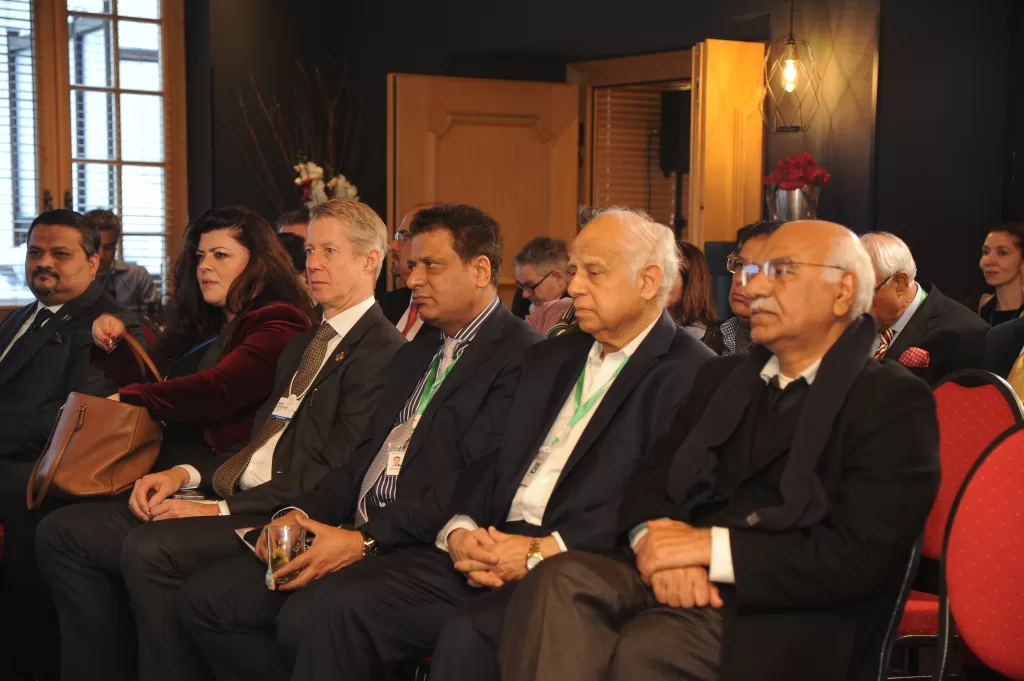
We are at the base of several initiatives. Telecom is no longer just a sector but a cross-sector enabler. It helps every single sector. Sectors that are important for us, like banking or finance, will become Fintech; agriculture will become Agri-Tech, and education will become Ed-Tech. Let’s talk about the Fintech component of it. Pakistan, again, has a huge opportunity. More than 75% of our adult population does not have access to a formal banking relationship. We have not expanded our banking footprint in the country. Yet, at the same time, almost every person, every second person has a mobile phone – a lot of them have feature phones, and about 50% of them have smartphones.
So, we realize that if we want to become relevant in customers’ daily lives, we have to make sure that we can provide them with a banking or financial solution through their smartphones. That’s the birth of JazzCash, and its parent Bank Mobilink Microfinance Bank have a total of 44 million accounts. I don’t want to get into numbers because it’s not just a competitive thing, but this number is larger than all the banks combined in Pakistan. So, where banks have failed, telecom companies have capitalized on that opportunity to provide banking, payments and all the services related to financial institutions through smartphones and feature phones.
More than 16 million customers use JazzCash every month, and 7 million transactions are processed every single day. We issue almost 100,000 loans every day to the tune of $25 to $40. That’s the power and reach of this initiative, and we made a commitment that we have to achieve parity when it comes to women’s inclusion. I’m proud to say that 30% of our borrowers and account holders are women now at JazzCash, but I’m not satisfied with that number. It has to be close to half and half, so there’s a lot more work to be done. But this is not where we’re stopping. We have to work on digital literacy; we have to overcome social and cultural barriers. Sometimes those barriers are not going to be easily addressed just by talking about them.
We have a dedicated team of people who go into what is called an outreach program; we have to work with communities. We’re learning from people like Dr. Sahab here on the remarkable things that he has done. So, we’re humble about what we can do. We have to build, borrow, and buy, but we’re also very humble in terms of learning. We learn from AMA, and when Ikram Sehgal said, ‘Listen, I’ve got this idea,’ I think he was knocking on various doors in terms of whether can we use feature phone connectivity to bring customers onto AMA.
Since we already had JazzCash, the initial thought was whether it was going to be a competitor. I was like, ‘No, my competition is not AMA; my competition is all those people who are relying on cash, who are not yet educated. It’s not always another digital bank, a traditional bank, or a different kind of player. Our competition has to be the opportunity in the country and the responsibility that we must bear to address that opportunity.’ So, I welcomed that idea, and I know that Profit magazine did an article, and they were really curious about what’s your angle, why are you supporting a competitor? I was like, we have to build the ecosystem, and the greater the number of people who talk about it, that there has to be something done for financial inclusion, the better it is for me. So, in a way, you helped me. I wasn’t helping you because you were advocating for inclusion at the central bank; I was doing the same thing at the Telecom Authority.
Together, we were able to create 10 million customers who are using their feature phones to get connected to their traditional banks. Now, that wouldn’t have happened if we had taken a scarcity approach. We have to shift gears, and part of the thing about rebuilding trust is how we collaborate more often. How do we have respectful, open transparent dialogues that allow us to go past that win-lose mindset into what can we collectively create?
I’m grateful for that call that you made to me, and I’m very proud if I can say so, of the achievements that you’ve made. We’re going to be cheerleaders, and if tomorrow you are more successful than JazzCash, so be it. All the more power to you. I’m certainly very excited about what lies ahead despite all the challenges that we are aware of and that we become more aware of every single day. Today, I thank all of you for being co-participants in this exciting journey ahead, and I thank you for your time.
Zarrar Sehgal, Moderator
We are very proud of our collaboration with you, and we hope it multiplies in the future. It is interesting; I’ve heard a lot about fears regarding artificial intelligence, and how humans will be replaced by machines. But I think it’s just the human brain fails to comprehend, as you said, the mobile phone that’s in my hand, which is an extension of my hand, can do more than 60 computers or 100 computers with 3,000 people could do without it, what I can do with my phone now is I can move cash, can search the net, and can print documents. So, I think it’s just the human brain doesn’t can’t comprehend that. If the concern is that human beings are turning into machines, that’s already happened with the advent of the mobile phone. So, the fear should be something different. How we regulate, how we manage that. But thank you again.
I’d like to introduce Muhammad Salman, our CEO of VRG and one of the principal architects of the AMA scheme. Ali Shah is sitting back there with iPath, and between the two of them, they’ve been the Principal Architects. So I welcome you, Salman.
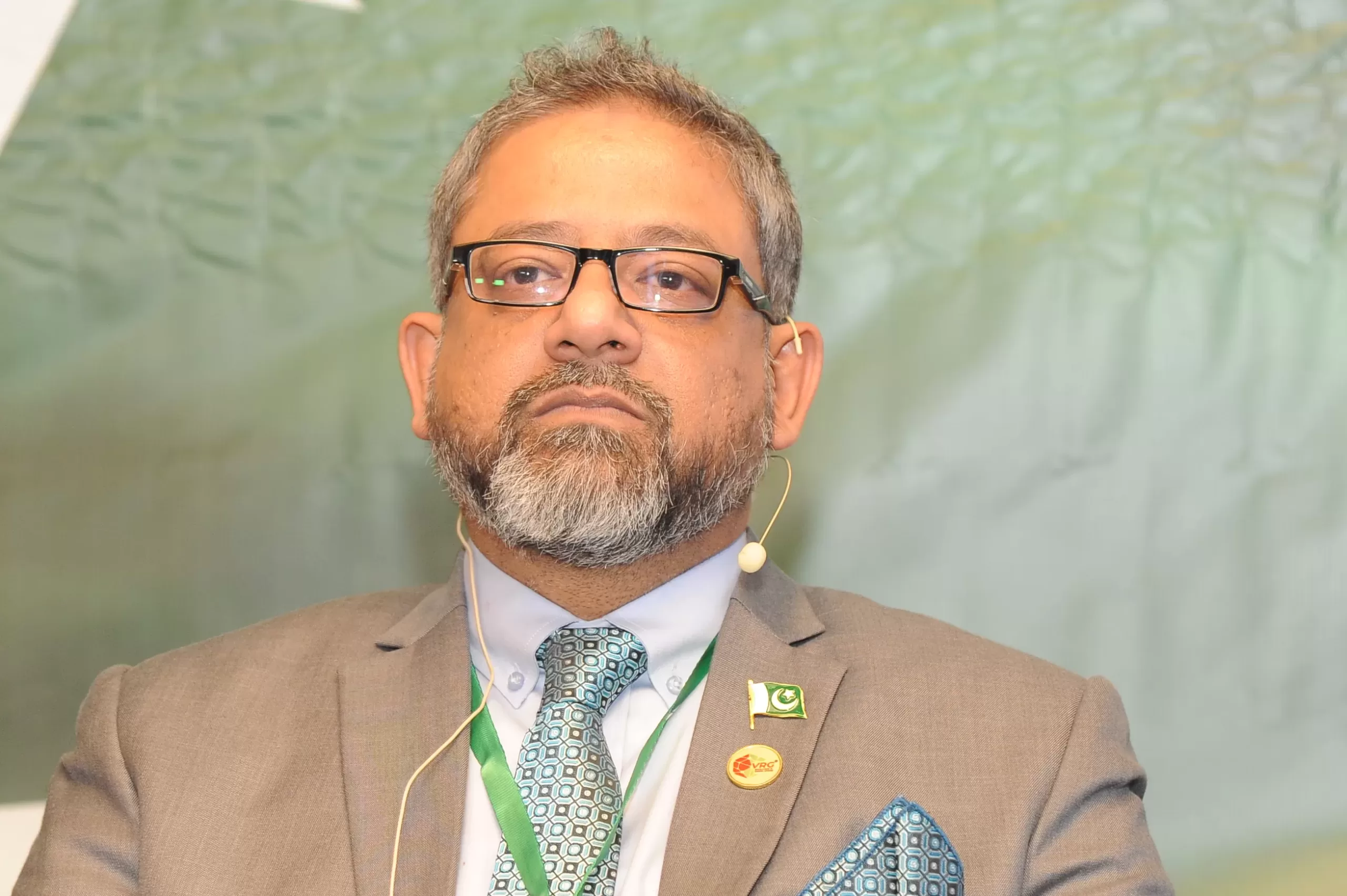
Salman Ali, CEO Virtual Remittance Gateway
Thank you, Zarrar. Indeed, like the polycrisis, and climate change issues, we have been suffering from and continue to face challenges from various aspects. However, we need to realize one thing: Pakistan and its potential. Some basics around a population of 230 million with 60% youth, about 130 million young people, are the gold mine for Pakistan.
Considering 196.4 million subscribers of telecom operators means these are potential clients with an outreach of which 46% are smartphone users and 44% are still feature phone users, especially those youth who are using those feature phones. So, the opportunity, I agree with Amir that the real competition is cash, the real competition is financial literacy, and the real competition is how to get people on board the financial services.
For example, if I’m using a SIM from one operator and want to open a bank account in another bank that is not a telecom bank, it’s not possible. These issues were there from the year 2002 till 2016, affecting financial inclusion numbers, from 5% to 7% to 8% then to 12%, but we are not going anywhere. So, we need to have a sort of solution, a sort of regulations, first where the interoperability among the telecom operators and the banks need to be in place. So, this is the first step and then the second step comes in how to get it implemented because every telecom-led bank, commercial bank or retail banks have their philosophy of operating in Pakistan. They’re not in sync. The good part is that the National Financial Inclusion strategy has been introduced in Pakistan in 2019. So, that is something which is providing a pathway for potential solutions.
In 2007, the TPSP (Third-Party Service Provider) regulations were introduced in Pakistan. VRG has been called to participate in that. Now, we are the only entity in Pakistan that has this commercial license of a third-party service provider. By this, all the telecom operators are interoperable, their services, their USSD service, interoperable with us. Now, the issue is we need to have a sort of scheme as Amir said, we need to have an ecosystem, a platform where every mobile user either from the smartphone or from the feature phone can interact with the bank. The bank is of their own choice; it’s not like any A bank or a B bank. So, that front platform will need to be there, iPath and VRG all together made this platform. As we speak, this platform is called the Amani platform and the first scheme which has been introduced by the World Bank, State Bank, and PTA, is the AMA scheme. That scheme enables all those masses who are using feature phones and by dialing just a short code from any telecom operator, you can access the banking services, and you can open a bank account in less than 2 minutes. Without producing any sort of document, all the AML, KYC, and everything is automated. It’s been verified online in real-time and the account is open directly.
So, I think about those people who are working in remote areas, let me give you an example, the Army personnel who are deployed on the Gilgit Baltistan borders, and in the mountains, are using feature phones, they cannot use smartphones, it’s a regulation, they cannot use smartphones. So, how can they get their salaries? They all have AMA; the salary will be directly dispersed into their accounts while standing over there. They’re using their feature phones to transfer the money to their loved ones and get all the balancing and all the financial service bill payments done just in a minute. It’s the biggest use case; the people who are using these services, like the workers, like the people who are the cobblers. I met a person at the Chaman Border because I just went there and got to know how this service works in those remote areas. So, a cobbler is using that service and transferring the money and also getting money into their accounts. So, no need to have physical cash in place. So, this is the inclusion which we are aiming at as VRG, as a Pathfinder Group company.
The vision of the Pathfinder is purely towards financial inclusion and women empowerment and for that, we are committed. We have been recognized for this solution; we have been recognized in 2022 by Queen Maxima, she said that if someone wants to see the poor pro-system go and see in Pakistan. We have been recognized by the WEF, thanks to Claude, all the other people and the team that this platform is being now considered as a platform, which can be easily replicated in other parts of the developing countries. Not only this, we have been awarded the Spotlight Day, as a VRG Spotlight Day, and where we have expressed this whole solution to the world but this is just the beginning. We are aiming towards not only 10 million accounts or 20 million accounts or 30 million accounts. We want to enrich this service with multiple services, right now, it’s just the financial services; this year we aim to include the health services into this platform so any person living in any remote area can directly acquire the health services; and all the insurance services by using the feature phone, not only smart phones. This is the objective; we have already collaborated with different service providers and different insurance company providers, and we are launching this service in the next quarter.
So, the aim is to make this platform a single window platform for all those masses who want financial services, health services, and later on education services. Seamless payments in Pakistan is very much possible. Now, we were facing challenges from the State Bank, from the different service providers but now with the introduction of ‘Raast’ by the State Bank, directly integrated with VRG. Let me tell you that out of these 10 million accounts and the transactions, I think 90.2 million transactions, most of those transactions are processed by the Raast seamlessly, there is no other scheme in Pakistan that is directly integrated with all the banks on a single scheme, integrated into a single scheme and gets a deposit on the State Bank.
Our objective finally is not to work only towards tapping those people who are living in the total having feature phones because internet penetration is very high. Aamir is working very hard with the ministry for the low-end telephone services and internet services as well so, we have planned to launch our AMA application. Insha Allah, it will be inaugurated in the next month by the Governor of the State Bank.
So, now we are also moving towards the area where people are using mobile phones but also require financial services. So, they can use the app as well. Let me just give you a very quick brief on what an Asaan Mobile Account is. How it is operating? What are our future collaborations? Our objective in Pakistan is also to automate all those government entities where the people are interacting at a mass level. So, let me give you a very quick brief on this AMA scheme.
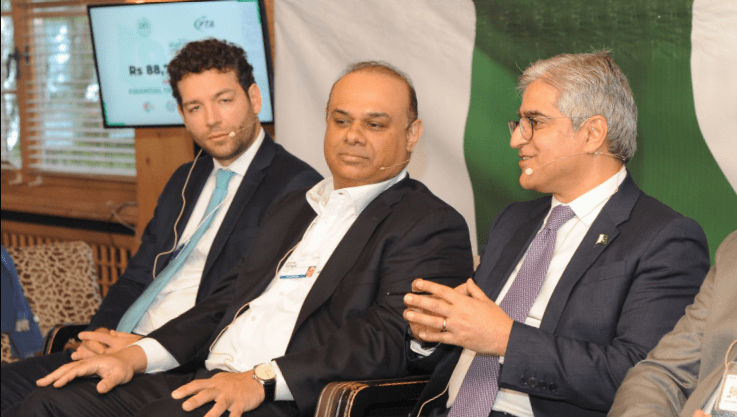
This scheme has very basic transactions going on but these are the main transactions which have been operated by masses. So, you can open a bank account, you have a mini statement, you have a change pin, balance inquiry, send money, and make bill payments. But the beauty is account linking, if you already have a bank account, if you want to link your bank account on this platform you can directly link your bank account. Let me tell you that out of 10 million accounts, nearly 30% of accounts are link accounts. So, that shows the success of this platform; that people are already having a bank account but they want to use this platform, they have linked their account to this platform. So, this is something really interesting. A very common model just to show you that everywhere all the Telecom operators, all the banks, this is the many-to-many model, the first time introduced in Asia by VRG and iPath, right now in Pakistan, we have this model as a one-to-one model but with partners like Jazz, with the partners like other three people, but the roadrail has been created by Jazz for this. Now, we have the many-to-many model and any Bank any sort of services and now banks are learning this model.
What they are saying is, what are those are propriety and the unique Services which we want to implement all these services on this platform. So, those services will be available to other people as well as a cross-interoperable platform so this is something we are very much looking forward to. We are also looking forward to enhancing the services and their IT infrastructure as well. Let me tell you one thing before I forget, we are the only company in Pakistan that has the PSOP/PSP and the TPSP license, two licenses, this is our USP but no, only the third USP is we are the only company in Pakistan with the PSOP/PSP license, TPSP license and a Cloud license for operating end to end operations on Cloud the first time in Pakistan. I’m proudly saying that the Cloud service provider is Garaj powered by Jazz so, 4 Telecom operators, 17 Banks, and 10 million customers are running on the Cloud service of Garaj.
So, this is the amazing thing which we have done in Pakistan. We have 10.1 million accounts but if you can see Balochistan and KPK, those areas where women are not allowed to operate, not allowed to go outside, and they are not allowed to hold money in their hands. Let me tell you that out of these 10 million accounts, 38% accounts are of women. This is for the first time in the history of Pakistan, never been done before. This is something which this platform is actually successful in bringing women empowerment. We can also tell you that in 90 million accounts with 87 billion PK worth of financial transactions, the major thing is if you see that KPK and Baluchistan and FATA regions where this service is more impactful, we are working with many other government entities but the outreach is again an issue and this issue is not related to the technology, it’s about you know physically going over there and educating the people, teaching them this thing and other financial literacy problems.
We are working with government organizations, I’m very proud to tell you that I’m working with government organizations like the Special Communication Organization (SCO) to roll out this service in Azad Jammu Kashmir and very soon we are just going to launch this service. National Savings is the biggest, I must say one of the oldest companies in Pakistan as a government entity that issues digital certificates and digital bonds. So, now a person can buy digital bond certificates, redeem them, get their profits by using their feature phone, 3.8 million active customers they have but still they are facing the same challenge for profit disbursement. For anyone requiring any new certificate they have to come to their offices, they have a long queue of people waiting there at the end of the month when the profits get disbursed which they are going to get collected in cash so, we are automating that.
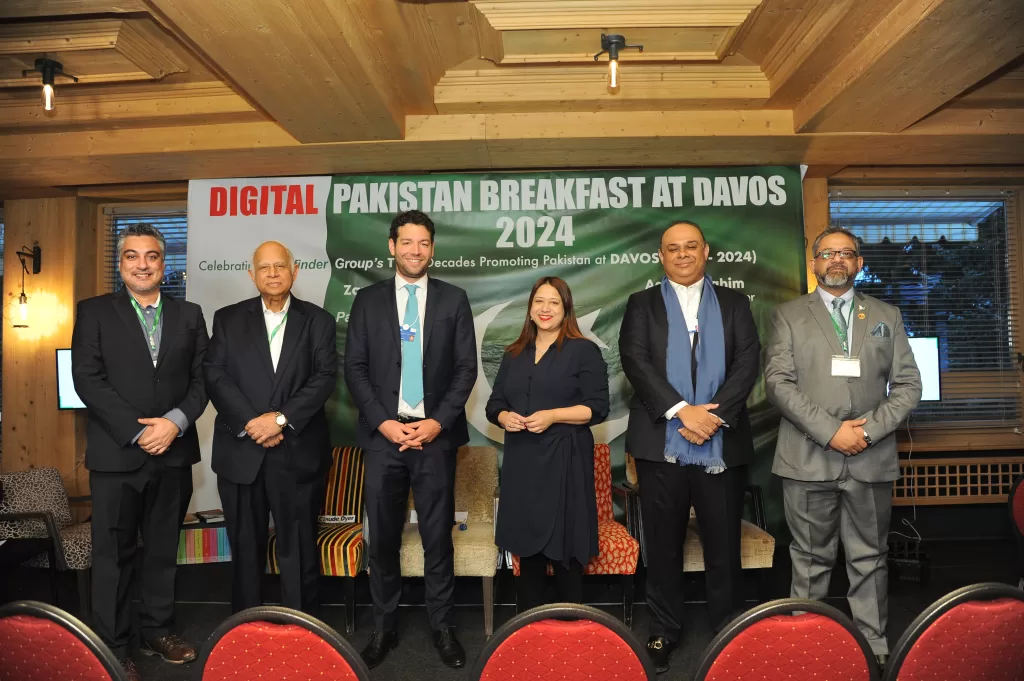
If you talk about Utility Store Corporation (USC) Shakil Sahab is here as GM USCs and we are automating the payment schemes where a person can come over what their groceries and then pay through AMA directly. This is right now POCs has been done so, we are about to go live very soon. 200,000 people visit Utility Stores daily, again it’s a government organization. We are working very closely with Zarai Taraqiati Bank Ltd (ZTBL) the biggest agriculture Bank in Pakistan. The same problem exists here for agri-loans for agri-services, they have the app but again those farmers don’t have Internet available or maybe don’t have smartphones. So, all those services now will be going to be on the feature phone by using the Asaan Mobile Account. We have recently run a test as the Bank of Khyber is the same bank just like the government bank but the good part is they have a very deep penetration in KPK. The whole KPK, 78% of the financial transaction is being, you know moderated by Bank of Khyber. They are on board and again it’s a government Bank, the good part is that the increase of AMA and the increase of women’s transactions in KPK encourages the Bank of Khyber to introduce this service. Again, thanks to AMA and their participants who make this possible.
The last one is the very biggest program, one of the biggest programs in the world, that is the program of Benazir Income Support Program (BISP). The chairman of the BISP is here, it is kind of him to give us time and to present a solution. The beneficiaries, and all the women beneficiaries, and if I’m not wrong, 9.3 million beneficiaries, we are having a word with them. We already have demonstrated how those women, by using those feature phones, can get all disbursements everymonth. They can also have access to their transaction history. Not only this but for the re-registration process and also for the authentication of the service, because sometimes a woman might be illiterate, so the cash provider or the agents who give the money might just bluff them. So, for every transaction, they must have validation on their phones. But again, they only have feature phones. So, this is the program we are working on with them, and we are very sure that we’ll be going to automate this process on the feature phone.
Last but not least, VISA. For the first, VRG has become the strategic partner of VISA in Pakistan. But what is the strategic level? There are three main pillars. The first one is financial inclusion. For any program, for a financial inclusion program, VISA is with us, and they want not only to invest but also to educate people with the financial literacy program. The second one is very interesting. Most government organizations, one of them is NADRA; a big organization where people go and pay for different services. Unfortunately, they accept only cash, no digital payments. So, for that opportunity, and because we are also moving our paradigm towards another pillar, to go into the tap and pay services, we are introducing tap services in the NADRA E-Sahulat centers and also in different organizations.
But this is something which is only for the government entities. And for that, VISA has given us a very high-level discount, but this again is going to be for the government organizations. So, we are working very closely with the government organizations because my perspective is that if the government organizations get digital where the people interact, that will create a much bigger impact as compared to the other service providers. Because everybody in Pakistan needs any sort of government service to get things done. So, this is our whole objective, this is something which VRG is focusing on, and the Pathfinder group is focusing on, our objective, our investments, and our commitment. Lastly, Pakistan has a huge potential despite all these crises, despite everything which is going on right now. Pakistan always has a bright future. We always have a habit of bouncing back, be it a political situation, a financial situation, or even a matter of cricket. But remember one thing, this youth, this gold mine, is never there in Asia. People can invest in Pakistan.
We are now replicating this model to other developing countries but with a flagship out there. This is a Pakistani product in Morocco, Egypt, and Sudan. I would like to thank again Amir, all the audiences, sirs, corporations, and all the respected audiences. Please understand that Pakistan is a country where you need to invest. Pakistan is a country where all things can happen, but at the end of the day, the results are positive. You can see Jazz Cash, you can see VRG, you can see any other company’s potential lies with the youth, potential lies with the operators, potential lies with the services, which is being and all the flexible policy by the State Bank of Pakistan. As the telecom operator and the atmosphere is very good, I would like to say that Pakistan has something unique that I have never seen anywhere else in the world. Thank you.
Zarrar Sehgal, Moderator
Thank you, Salman. That was excellent. I was going to ask you a few questions as well but I’d like to give the floor to Ali Shah CEO of iPath.
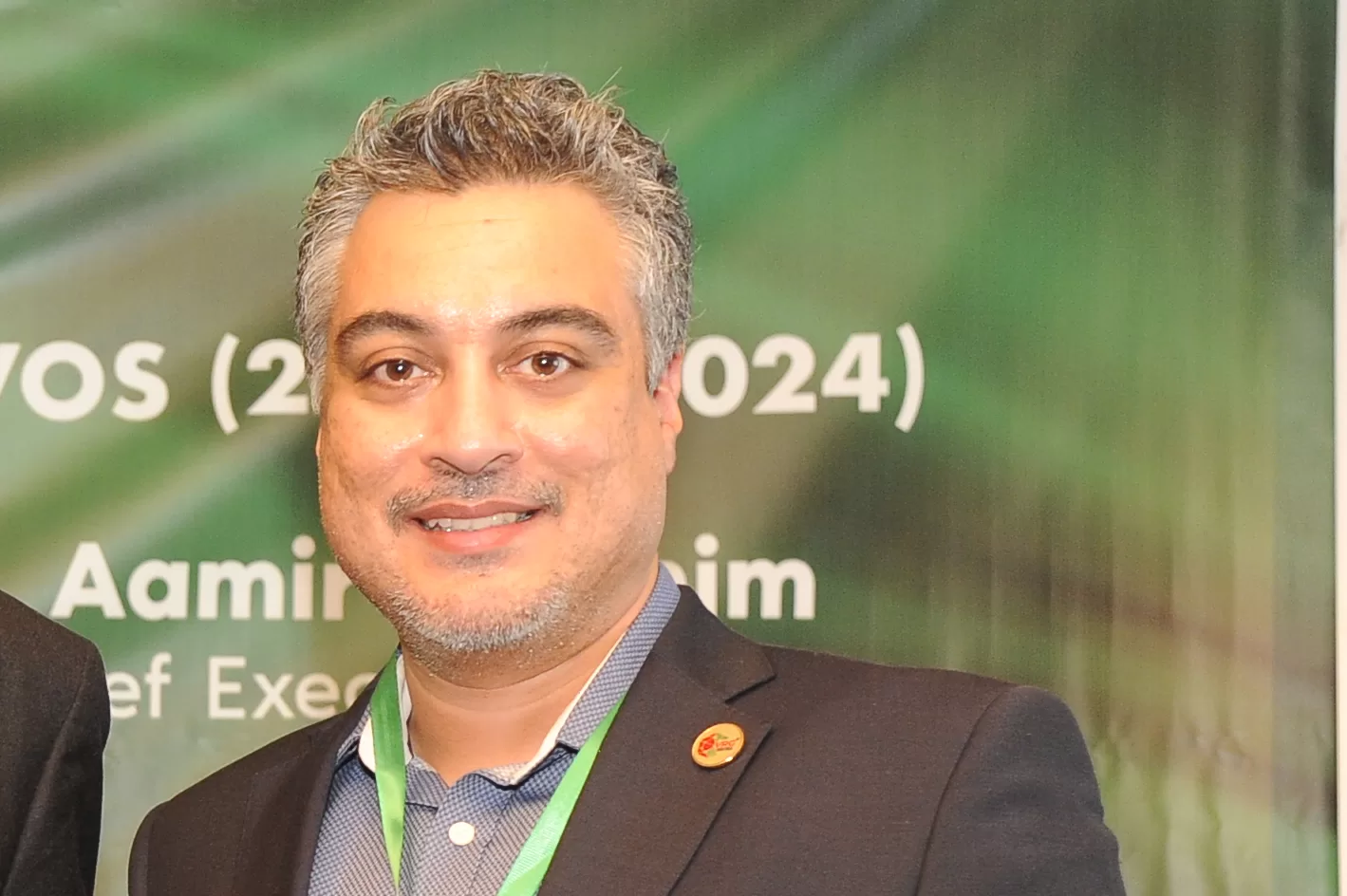
Ali Shah Asani, CEO IPath
I lead a wonderful team of engineers in Pakistan at a company called iPath, a member of the Pathfinder Group. We work closely with VRG to build the AMA platform. I want to take a moment to appreciate the efforts and support we’ve received from Jazz because as the chief architect of the project and sitting between two regulators while trying to fuse together two different industries, one talking about carriers and channels and the other talking about transactions, was a significant challenge. Initially, we had extensive experience in banking, but understanding the telecom industry was like brushing the surface trying to understand how this industry works. We walked into a lot of rooms, a lot of people told us ‘you are competition, we are not interested’. But there was one room that we walked into who said, ‘we see an opportunity’. And that was Jazz and just because of Jazz and the first integration we made with Jazz was the trickle-down effect and the entire telecom industry started integrating with us. That one step was such a giant leap that gave us the entire telecom industry and it was a crucial step that propelled us forward.
I’d like to share an analogy: in the ’60s, Motorola invented the first telephone, but it was a Pakistani innovator in the ’90s who popularized the missed call concept. Similarly, with AMA, we’re witnessing the dawn of a new era. As more people come up with their cases, we anticipate numerous innovations. Our vision for AMA extends beyond financial inclusion; it encompasses health tech and education. Allow me to elaborate on our health tech platform. We found out that in the North American market, healthcare data interoperability is a significant challenge. Once you start going to and visiting multiple healthcare providers and getting access to your medical records is not that easy. Every doctor is maintaining their records in their own silos, in fact we also learnt that there are some cases where actually Pakistan is way far ahead in the US. We can send an instant bank transfer in 30 seconds or you get your money back, or you do the same thing in the US, the transfer takes about 3 days. I hope that is going to change but it sold out last year. When we speak about healthcare interoperability we found out that 80% of malpractices take place because the data is not available from one healthcare provider to another healthcare provider during their transactions. One out of four Americans actually had to repeat their lab tests because the information is not shared across the healthcare network. And this is basically when we started building the healthcare exchange we’ve developed a solution – a healthcare information exchange that aggregates medical records from various providers, ensuring seamless access for patients and providers alike. We’ve achieved several certifications, including HIPAA compliance and SOC 2 certification. Realizing the potential of this platform, we aim to implement a similar system in Pakistan. By leveraging national ID cards, we envision a national health record platform accessible to all Pakistanis, revolutionizing healthcare delivery.
Additionally, we’re exploring partnerships with Amazon for co-innovation in the Middle East’s public sector. Our goal is to converge banking, healthcare, and education services through AMA, empowering individuals to improve their lives and communities. With access to comprehensive data, we can also explore avenues like augmented intelligence and clinical trials.
In conclusion, the future looks promising for the Pathfinder Group. We’re ambitious, on the right trajectory, and poised to achieve our goals. Thank you so much.
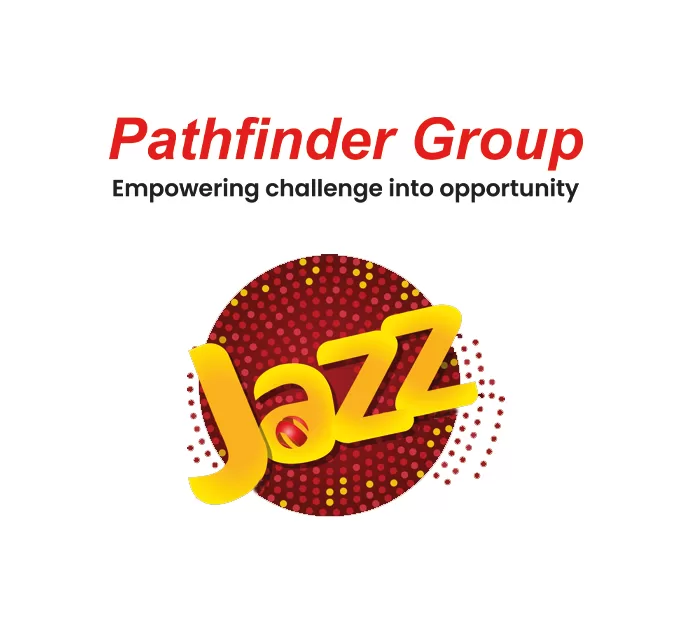
Question & Answer Session
Question My name is Samina Bilal. I have two questions.
1. Pardon my ignorance but it’s a State Bank involved in any of this and was it if so, did it have a facilitative role or was it more of an obstacle?
2. In the challenge that impacts the entire world facing anti-money laundering, and sort of counterfeit financing. What are the safety firewalls, if any for this initiative, thank you.
Zarrar Sehgal
VRG and the AMA scheme are regulated by the State Bank. I think as Salman said, we’re the only company that’s been regulated both by the State Bank and by the Pakistan Telecom Association, we’ve got both licenses. So, the State Bank is very much a regulator, one of our two regulators, as far as obstacle versus. I don’t want to go into details obviously, there’s been a lot of change in personnel over the years and change of thinking over the years. So, I would call it obstacles. I would call it normal bureaucracy in Pakistan. I believe that although we faced some challenges, but to bring it up to speed today, the platform is currently very supportive. As we have emphasized many times, it is not a government-owned entity. We’re a private enterprise, we want to build a public-private sort of partnership. But it’s very much from a State Bank perspective, they are very supportive of the platform, and they’re looking for ways, we can integrate with as Salman said, Raast. I’ll let Ali answer the technical question.
Ali Shah Asani
When we began constructing the platform, the concept revolved around utilizing only your national ID card and a feature phone – no smartphones, no internet, just USSD technology. Opening a bank account entailed immediate considerations for AML compliance, fraud checks, and more. The realization that an account could be opened in just two minutes, compared to the conventional five days, with the standard KYC and due diligence processes, struck us. Fortunately, a significant development in Pakistan since 2014 was the biometric authentication of every mobile connection. Led by Tariq Malik, NADRA ensured that every mobile connection was linked to a CNIC number. Opening an AMA required pairing your mobile connection’s CNIC with the account.
This led to a collaborative effort between NADRA, the State Bank, and the PTA. They provided the necessary infrastructure for retrieving KYC information remotely, without human intervention. Additionally, an added layer of authentication required the inclusion of the date of issue printed on the CNIC. The process involved providing your CNIC number and the date of issue, ensuring a seamless experience. Once initiated, the request underwent a series of checks, including a pairing check between your CNIC and mobile connection in the national mobile number database. Subsequently, the request was forwarded to the bank and NADRA for KYC retrieval and due diligence, ensuring completion within two minutes. In summary, while navigating through State Bank policies and red tape can be time-consuming, their stringent adherence to compliance and regulations is commendable.
Tariq Malik
I just want to add that this was one of the biggest challenges because KYC compliance, AML compliance, and FATF compliance, are done in most of the underdeveloped countries by taking the photocopies and maintaining the files. Those records are then stored in some place, which catches fire and then nothing is available. So, my job was very difficult to digitize that process also, once we did that digitization it did not open an arena for financial inclusion, but you know property rights and all other obstacles were there which I will cover in my presentation.
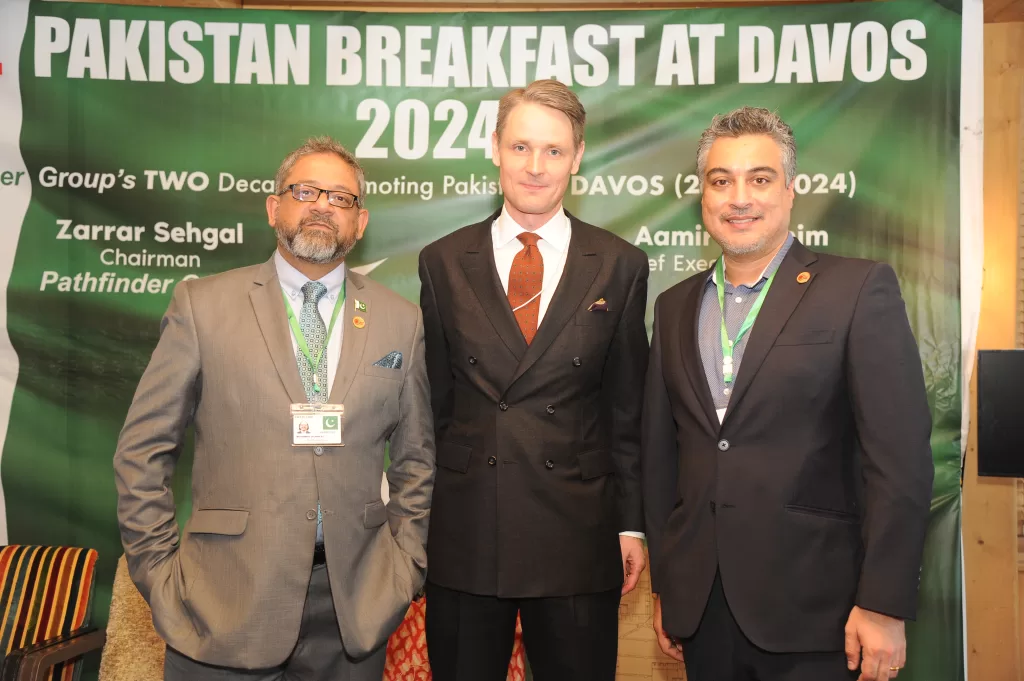
Question From Dr Amjad Saqib
I have the privilege of representing two of the largest initiatives, one is the social safety net, the Benazir Income Support Programme and the other is poverty alleviation effort promoting financial inclusion through interest-free loans, Akhuwat which is the largest interest-free programme in the world and we have given over 6 million loans in Pakistan. While I duly appreciated Aamir sahib for his contribution and Ikram sahib and VRG, my question is that we are very keen to have linkage with VRG, we have started working on it and we have 9.3 million poor women beneficiaries which will soon reach 10 million. Despite excellent data from Tariq Sahab, a major issue is the ‘Kattoti’ fraud where women receive less than the stipulated representing the two largest initiatives. One is the social safety network that is the BISP and the other is a poverty amount. If a woman receives 9,000 rupees, she usually gets 7,000 – 7,500 and if the vendor is too kind, he will give her 8,000 rupees. My goal, having joined BISP two and a half months ago, is to open bank accounts for these women, aiming to significantly advance financial inclusion in Pakistan. I’m interested in what are the potential challenges and solutions for establishing this partnership and achieving our financial inclusion goals. So please tell us about these challenges and how can you mitigate these challenges?
Aamir Ibrahim
Thank you doctor sahib. Why hasn’t it happened? Both you and I need to work harder and make it happen, this is the straightforward answer to that. This time we are saying that we will transfer the money only to a mobile account, we will not give cash, we don’t want to give cash. Cash has many issues as highlighted but there are some forward-leaning mindsets also in your organization and I hope that you continue to spearhead it. Now, we’re beginning to see that ‘Ray of Hope’ that we have to do something differently, we cannot keep on resorting to what we’ve done in the past. So, very succinctly what needs to be done is for you and I to sit down together. We explain to you why opening a Mobile account, whether it’s mine, whether it is someone else’s bank, it does not matter, what is important is to put the money in a bank account. What we can do additionally is what the money gets used for, and why is the money cashed out. So, Jazz Cash today has 300,000 retail outlets, where your QR code through a smartphone or a USSD string can help you purchase groceries from that shop. Eventually you put money into a mobile account and at some stage, there is a cash-out in our terminology, which is the biggest predictor of failure for us. Why does the cash have to be taken out, why can’t we build the ecosystem where you don’t need to pay cash? In Switzerland, and other developed countries you’ll struggle to find places where you can actually pay in cash. Because everybody accepts a digital alternative.
We have people from the government over here, we need to make sure that digital is cheaper than cash. Today it’s the other way around, there are greater impediments to onboard digital than there are to cash. So, hopefully, once we go back, we have to work on other options rather than provide money into the account. We can always do a limited mandate, so a woman receives 30% of that only goes to education, 40% of that goes to a grocery store, 20% can be done something else. We can lock components of that wallet so that that money is not taken away and spent by her husband on cigarettes or something else.
Salman Ali
So, the first step is already being taken. We already working with Utility Store Corporation and the systems have been tested. Let’s suppose the beneficiary gets 8,000 rupees, out of 8,000 rupees 4,000 rupees can only be used at the Utility Stores for the payments of groceries. So, the first step is already been done, we are about to go live once we are in the final phases so this is something which we already have done for the BISP.
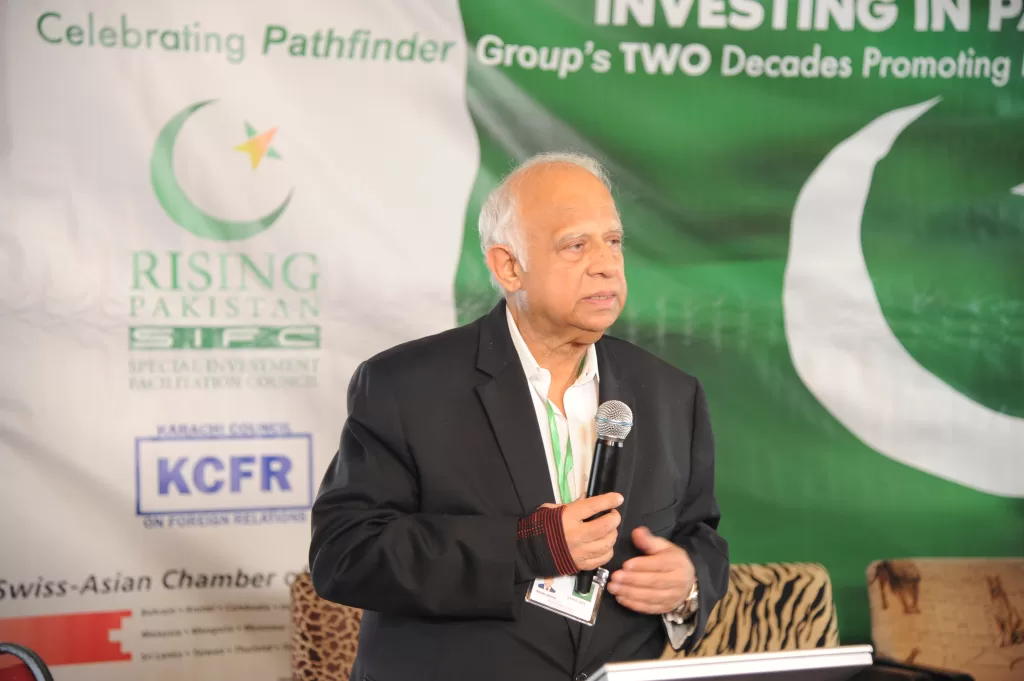
Ikram Sehgal, Co-Chairman Pathfinder Group
Firstly, I would like to express my gratitude to all the participants present here. You cannot imagine the level of support we’ve received from around the world. We are here today because of the encouragement and support we have received from whoever has been a part of this journey from the very beginning, I thank you sincerely for that. I would also like to take this opportunity to extend my thanks to Jazz for their unwavering support, and to Amir as well. Making a strategic decision, especially one that goes against your commercial interests, is never easy. However, I believe it was a decision that will change the destiny of the poor in Pakistan. This is not a small feat — it is monumental. Back in the ’70s, one of our late Prime Ministers spoke of “Roti, Kapraa, aur Makaan” (Bread, Clothes, and Housing). But how can one think of housing without even having a bank account? This is where our Asaan Mobile Accounts come into play. We are working on various initiatives, including low-cost housing, for those who have AMA holders.
I am incredibly proud of my team, including Salman, Ali Shah, and others, who have played a crucial role in developing and supporting this initiative. I must confess that I am not a financial expert. When I left the Army, I thought an LC (Letter of Credit) was a girl. That’s how little I know about finance. Similarly, I am not technically inclined, as my son and daughter-in-law can attest. However, we had a vision and with the support of my family, particularly my son and others, we have been able to pursue that vision. It was crucial to have the right people who believed in our strategic decision and we have been fortunate in that regard.
As Ali Shah mentioned, we are making significant progress with Amazon and our partnership with Visa has opened up opportunities not only in Pakistan but also in other countries like Egypt and Morocco. The sky is the limit, and as my son says, we are now open to investment. Up until now, we have not sought funding from external sources; all our investments have been internal. We have not received any support from bureaucrats despite our efforts. We have never taken a bank loan either. Therefore, all the resources we have today are our own.
Moving forward, we are considering equity options and my son will decide the best course of action. I would also like to address Dr. Saqib directly. While I appreciate your intentions, the bureaucracy surrounding BISP poses significant challenges and despite your efforts, the bureaucracy is not conducive to progress.
I have seen firsthand during my tenure on the board of Bank Al Falah, how BISP funds were misused. Therefore, the government must clarify the purpose of such funds. We are working with the Utility Stores Corporation to ensure that funds allocated for groceries are used for that purpose only. This requires a concerted effort and determination.
Lastly, I want to thank everyone involved in this endeavour, including Dr Urs Lustenberger from the Swiss Asian Chamber of Commerce, my family, my dedicated staff, and especially Salman and Ali, the CEOs of the companies, who are making a significant contribution to Pakistan’s progress.


